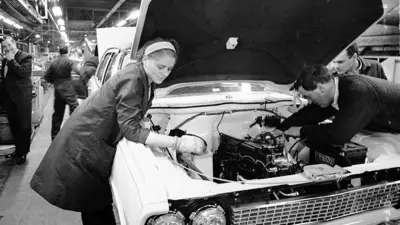We've updated our Privacy and Cookies Policy
We've made some important changes to our Privacy and Cookies Policy and we want you to know what this means for you and your data.
Hitler items bought by Lebanese businessman to thwart neo-Nazis
Image source, Getty Images
Top Stories
A Lebanese businessman has donated items of Nazi memorabilia he bought at a controversial auction in Germany last week to Israeli fundraisers.
Abdallah Chatila said he purchased the items to prevent them from being used as neo-Nazi propaganda.
The Swiss-based entrepreneur donated the items - including Adolf Hitler's top hat - to Israeli fundraising organisation, Keren Hayesod.
The auction had been sharply criticised by Jewish groups.
Mr Chatila spent about Ôé¼600,000 (┬ú513,000) on 10 items during the auction held by the Munich-based auction house, Hermann Historica.
Top Stories
He is one of Switzerland's 300 wealthiest people, having made his fortune in diamonds and real estate in Geneva.
Top Stories
"Far-right populism and anti-Semitism are spreading all over Europe and the world," Mr Chatila told the Swiss newspaper Le Matin Dimanche. "I did not want these objects to fall into the wrong hands and to be used by people with dishonest intentions."
In addition to the hat, the items he purchased included Hitler's cigar box and typewriter, as well as a silver-covered edition of Hitler's autobiographical Mein Kampf.
Image source, Hermann Historica
His actions were praised by Jewish groups, including the European Jewish Association (EJA), which had said the auction items held little historical value and would have been bought by individuals who glorified Nazism.
Rabbi Menachem Margolin, head of the EJA, said in a statement he was "bowled over" by the gesture. "In a cynical world... such a noble act of kindness, generosity and solidarity," he said.
He also said Mr Chatila would join a visit by 100 European parliament members to the site of World War Two death camp Auschwitz in January, where he will receive an award.
The auction featured 147 items specifically related to Nazi Germany, among more than 800 German historical collectibles from 1919 onwards.
Hermann Historica said the majority of its customers were museums, state collections and private collectors, and that steps have been taken to prevent items from falling into the wrong hands.
Top Stories
More to explore
Most read
Content is not available








